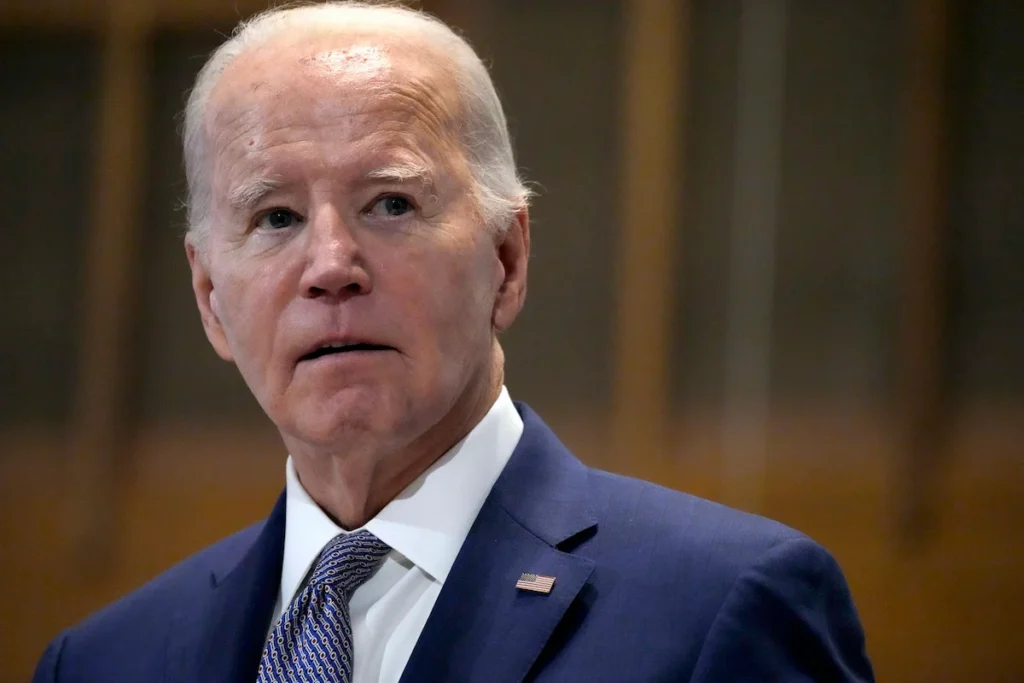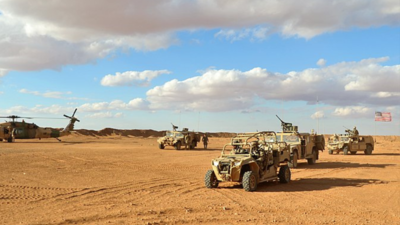
In a tragic turn of events, the recent incident marks the first instance of American forces personnel being killed by enemy fire in the Middle East since the beginning of the Gaza war. The soldiers lost their lives at a small U.S. outpost in northeast Jordan, situated near the border with Syria.
President Joe Biden swiftly responded to the attack, attributing it to “radical Iran-backed militant groups operating in Syria and Iraq.” He emphatically stated that the United States “will hold all those responsible to account at a time and in a manner of our choosing.”
President Biden expressed deep condolences as he joined the families and friends of the fallen soldiers, along with Americans across the country, in grieving the loss of these warriors in what he described as a “despicable and unjust attack.”
The gravity of the situation is further underscored by the fact that it is the first time American forces have suffered casualties in the Middle East since the onset of the Gaza war.
The soldiers were stationed at a small U.S. outpost known as Tower 22 in northeast Jordan, near the Syrian border. Despite more than 158 assaults on U.S. and coalition forces in Iraq and Syria leading up to the incident, such attacks rarely caused serious injuries.
The perplexing aspect of the tragic event is the unclear reason behind the failure of air defenses to intercept the drone attack on Tower 22 outpost.

The U.S. forces in the region are deployed as part of an advise-and-assist mission with Jordan, and this attack is believed to be the first on Tower 22 since U.S. and coalition forces became targeted on October 17. The incident raises questions about the security and preparedness measures in place at such outposts.
In a separate incident, a Royal Navy ship, HMS Diamond, successfully shot down a drone fired by Iran-backed Houthi rebels in the Red Sea. Utilizing its Sea Viper missile system, HMS Diamond intercepted the Yemeni drone in the latest round of strikes.
Fortunately, there were no reported injuries or damage on the British destroyer after this attack.
The UK’s Defence Secretary, Grant Shapps, condemned the attack on HMS Diamond as an “illegal attack” and reiterated the country’s unwavering commitment to protecting innocent lives and the freedom of navigation. The Ministry of Defence emphasized that such intolerable and illegal attacks are unacceptable, emphasizing the duty to safeguard the freedom of navigation in the Red Sea.
The bravery of the crew of HMS Diamond was acknowledged, thanking them for their service in defending British and international interests.
The Houthis, known for their repeated attacks on vessels around the Red Sea, have targeted shipping amid the ongoing conflict between Israel and Hamas in Gaza.
A British-linked oil tanker in the Gulf of Aden fell victim to another Houthi strike, resulting in a significant blaze that lasted for hours. Fortunately, no crew members were injured, thanks to the timely assistance provided by French, Indian, and U.S. naval ships.
Amid these developments, a report has surfaced claiming that British warships lack the necessary firepower to attack Houthi targets on land. The majority of strikes on Houthi targets have been carried out by the U.S., with support from RAF planes based 1,500 miles away.
The Ministry of Defence clarified that, as with all coalition operations, commanders select the best equipment for the job.
President Biden, in a statement, expressed the heaviness of America’s heart over the loss of three U.S. service members in the drone attack. He highlighted the ongoing efforts to gather facts about the attack, affirming that it was carried out by radical Iran-backed militant groups operating in Syria and Iraq.
The President, along with First Lady Jill Biden, extended heartfelt condolences to the families and friends of the fallen soldiers and the American people.
The President described the service members as embodying the very best of the nation—unwavering in bravery, unflinching in duty, and unbending in commitment to the country’s safety and that of allies in the fight against terrorism.
He emphasized that the fight against terrorism would not cease, and those responsible for the attack would be held to account at a time and in a manner chosen by the United States.
As the nation grapples with the aftermath of this tragic incident, questions linger about the security protocols in place at U.S. outposts in the region and the broader implications for international security in the Middle East.
The complexities of the geopolitical landscape and the ongoing conflicts underscore the challenges faced by nations striving to maintain peace and security in the region.
